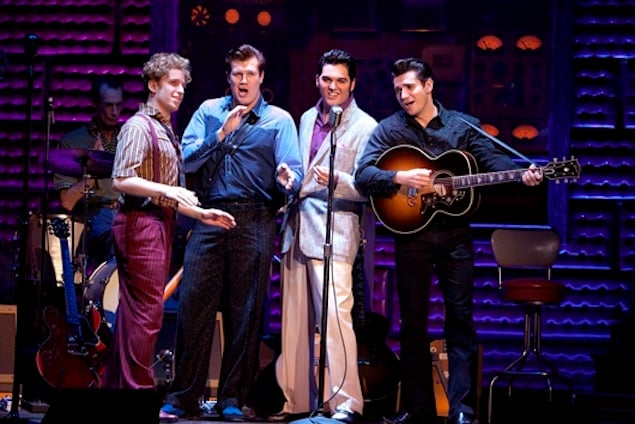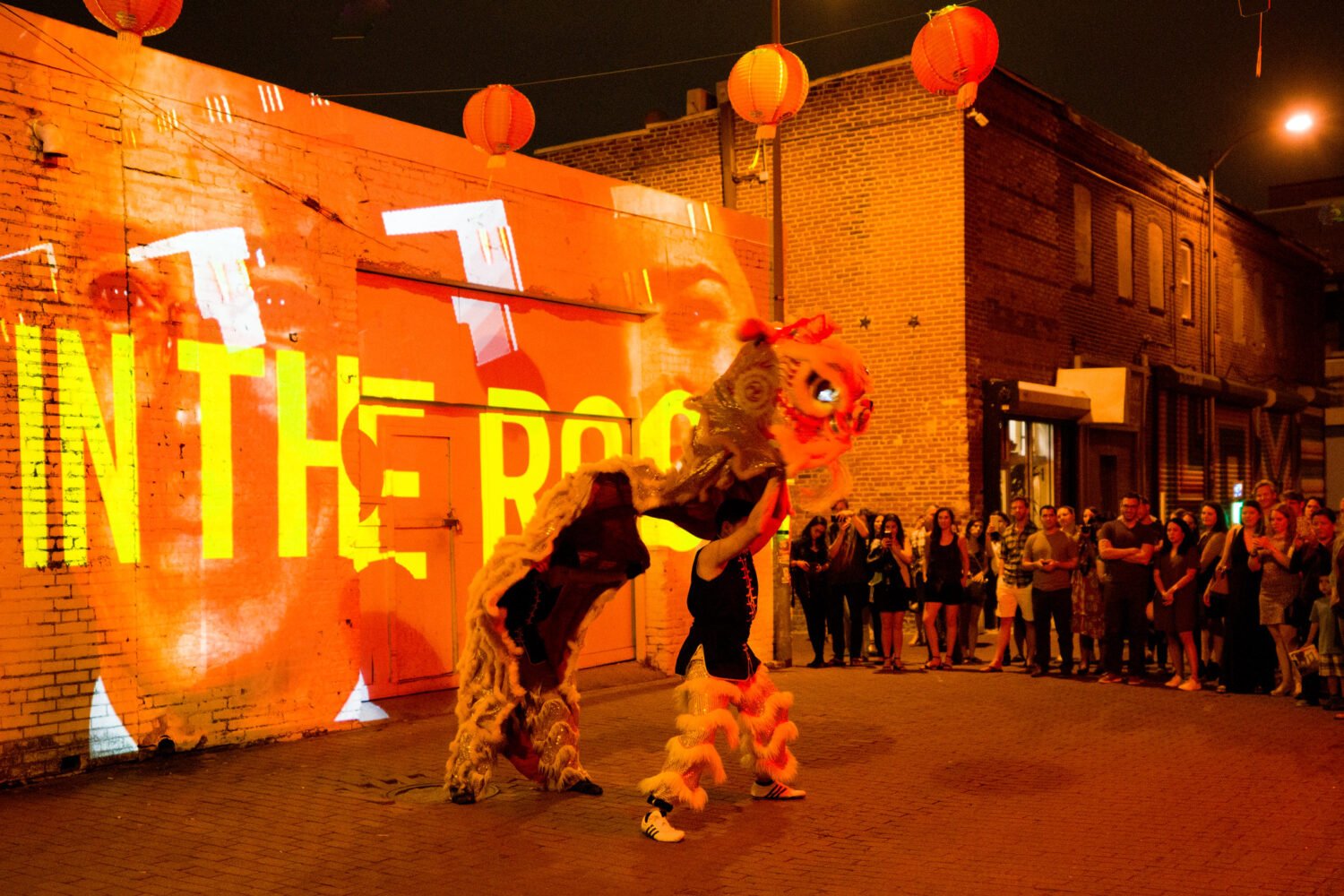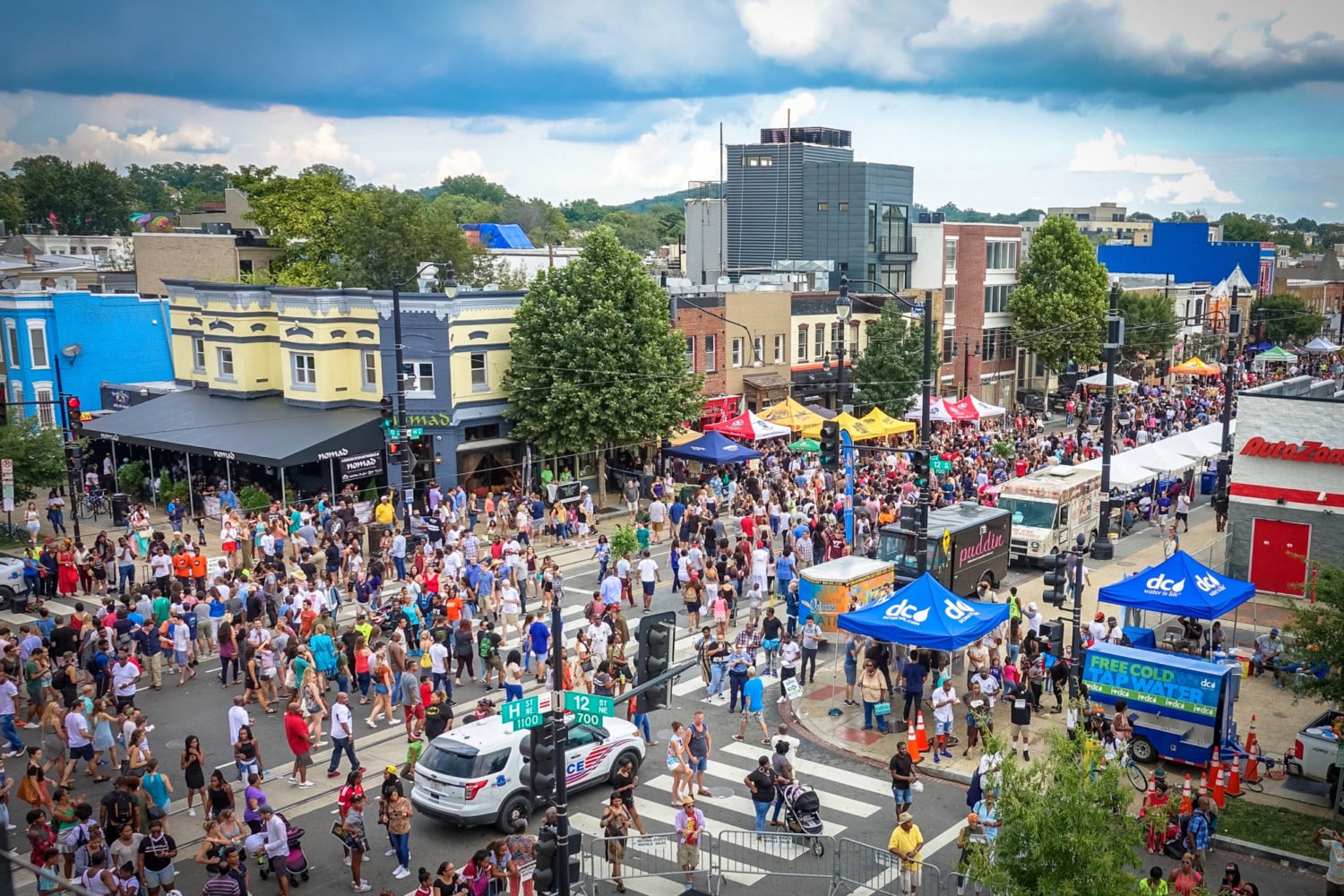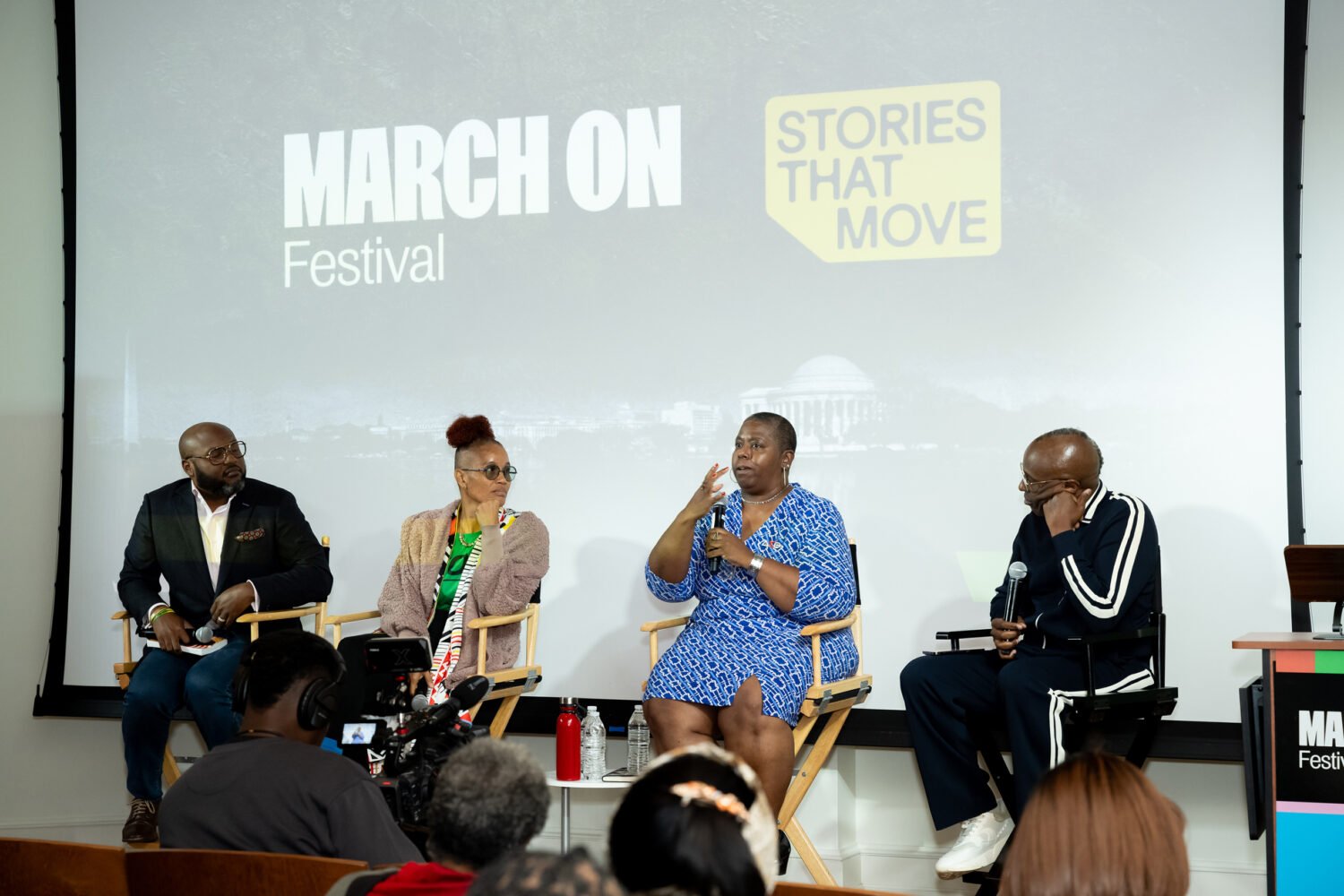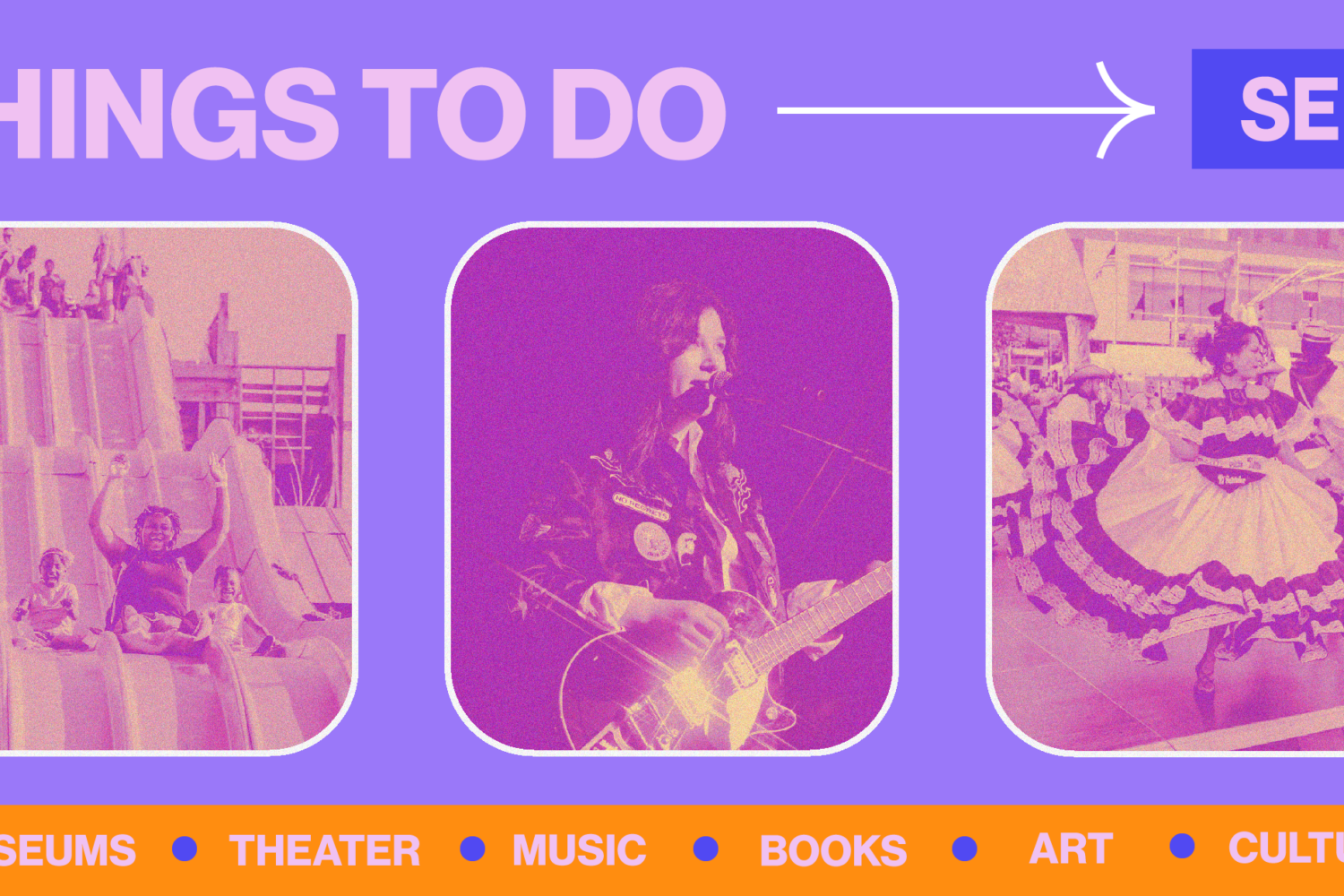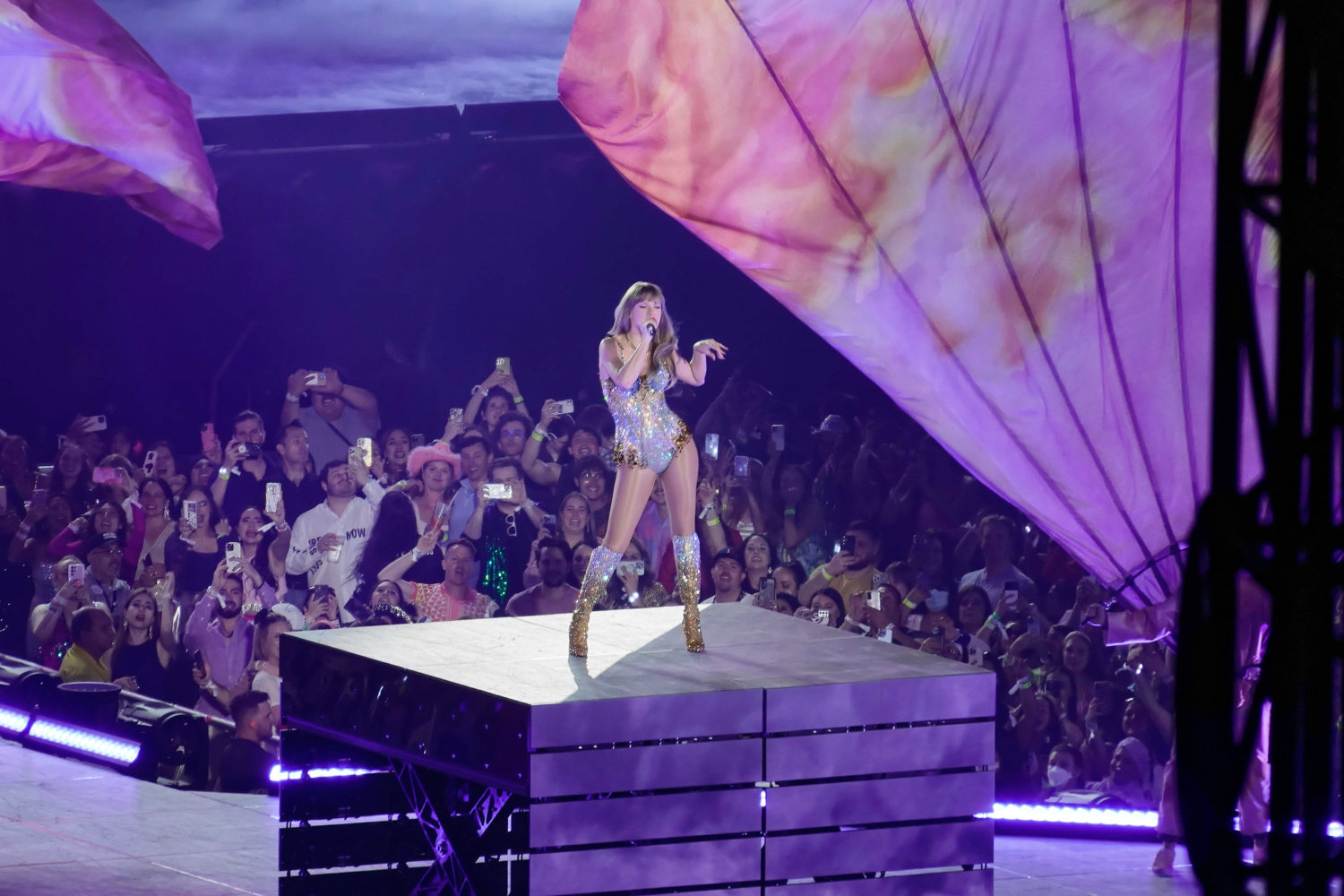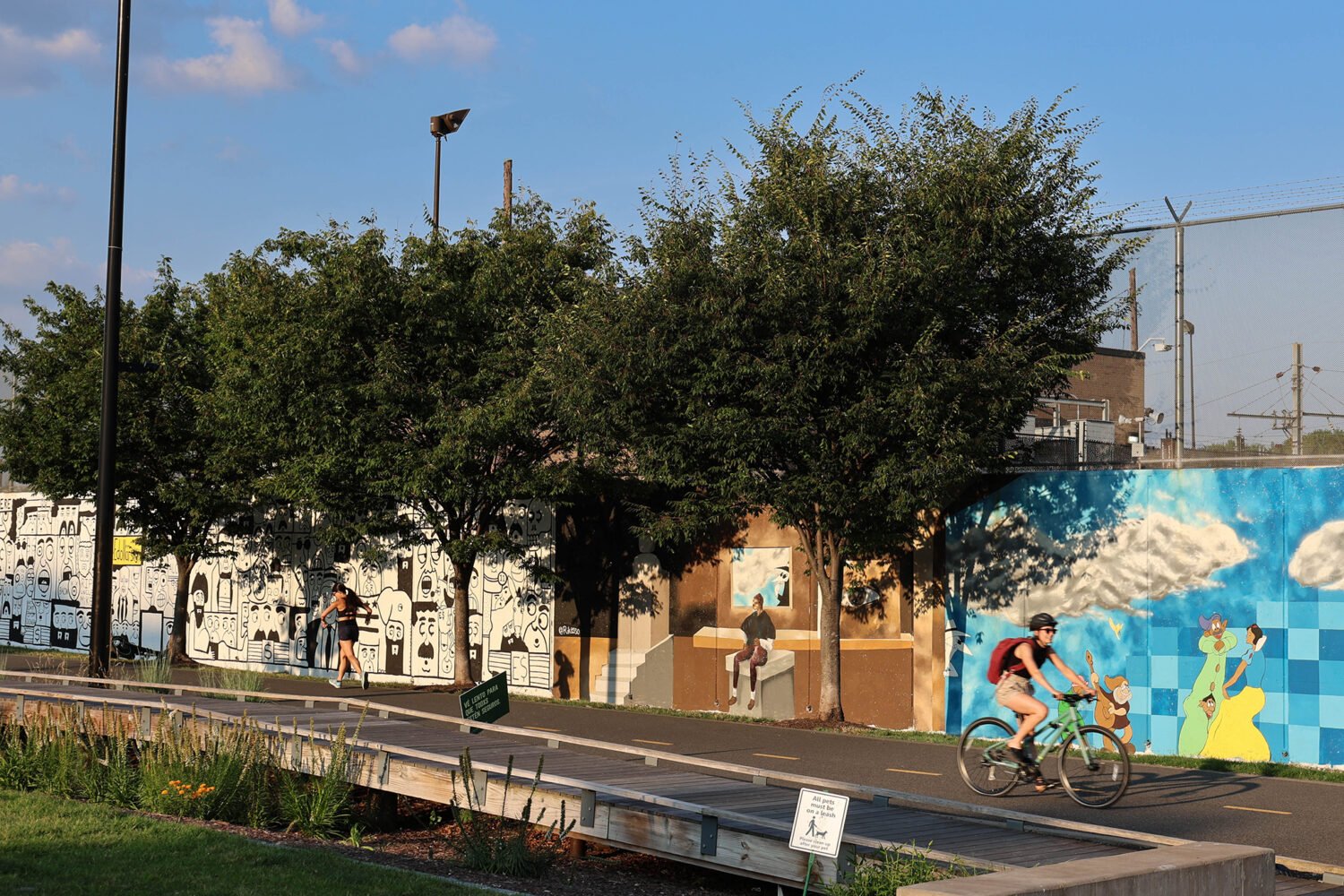
Decades before leagues of barstool fans started tabulating scores on their smartphones,
one man drafted the ultimate fantasy team. But these were titans of sound, not sport.
The man was Sam Phillips of Sun Records, and his 1956 gathering of rock-and-roll pioneers
Johnny Cash, Jerry Lee Lewis, Carl Perkins, and Elvis Presley for one now-legendary
jam session is the inspiration behind the Tony-winning Broadway musical Million Dollar
Quartet, now playing at the Kennedy Center.
Part of a national tour, the production, directed by Eric Schaeffer, is more like
an exceptionally lively concert than a traditional musical. Strained relationships
and true-to-life backstories and flashbacks are woven throughout, but they appropriately
serve as set breaks for a long playlist of familiar chart toppers, from “Hound Dog”
to “Great Balls of Fire”—allowing the audience members to fancy themselves among the
luckiest flies on the wall of American musical history.
Unlike other Broadway crowd-pleasers of the “musical formed around a preexisting nostalgic
soundtrack” ilk (Mamma Mia, Jersey Boys, etc.), Quartet sets itself apart by forgoing
the orchestra pit for actors who are playing their own instruments—and in this case,
playing their own instruments really, really well. Though his character is arguably
the least recognizable of the four musicians all these years later, Robert Britton
Lyons as Carl Perkins, the rockabilly icon who originally wrote and recorded “Blue
Suede Shoes” before Elvis made it a hit, strums a mean guitar. David Elkins dutifully
provides the rumbling bass vocals required of the Man in Black playing Johnny Cash.
As Elvis, a properly snarl-lipped Cody Slaughter occasionally comes off as impersonating
the King rather than embodying him, but his expressive singing and distinctly Elvis-like
gyrations are more than redeeming.
Most impressive is Martin Kaye. Hammering at the piano with near-Olympic agility and
fervor (he stops just short of tap dancing on the keys), Kaye’s Jerry Lee Lewis is
jaw-dropping, pushing his instrument to its full potential and then some—his performance
is the toe-tapping heartbeat that keeps the production so vibrantly animated. Plus
he just makes it look fun. The music the four make together is especially absorbing,
taking turns on riffs or blending their voices in rich a cappella harmonies. Even
the gangly, unassuming duo on bass and drums, Corey Kaiser and Billy Shaffer, respectively,
emanate a cool soulfulness from their background post in the recording studio where
the session is set.
The problem with basing a musical on an actual event (the union occurred at Memphis-based
Sun Studios December 4, 1956, the first and only time Sam Phillips’s four protégés
performed and recorded together), is that the action is tethered to some degree to
historical details, not necessarily compelling plot points. A few sultry songs by
a love interest of Elvis’s (a striking Kelly Lamont), while entertaining, feel slightly
out of place, but she was there that fateful night, so she makes the cut. Vince Nappo’s
Sam Phillips makes a fine narrator, but the tightly packed, sing-along-friendly soundtrack
doesn’t allow much chance to get to know him.
You don’t have to be acquainted with their biographies or even be a long-time fan
of their music (an energetic mix of gospel, country, R&B, and rock) to appreciate
this show and the lasting impact these men had on American culture. The unlikely coming
together of such talented artists in one place is what made the real “Million Dollar
Quartet” (so dubbed by a newspaper article at the time about the get-together) so
noteworthy. With this show comes another formidable union of performers and musical
collaboration, but this time we’re all invited into the intimate studio, too.
Million Dollar Quartet plays at the Kennedy Center’s Eisenhower Theater through January
6. The show is performed without an intermission. Tickets (starting at $55) are available
through the KenCen’s website.

